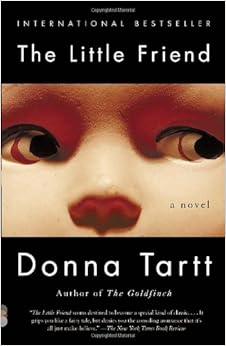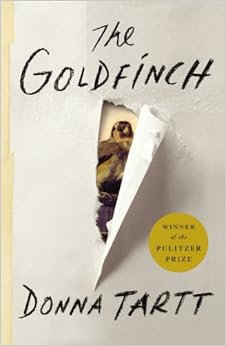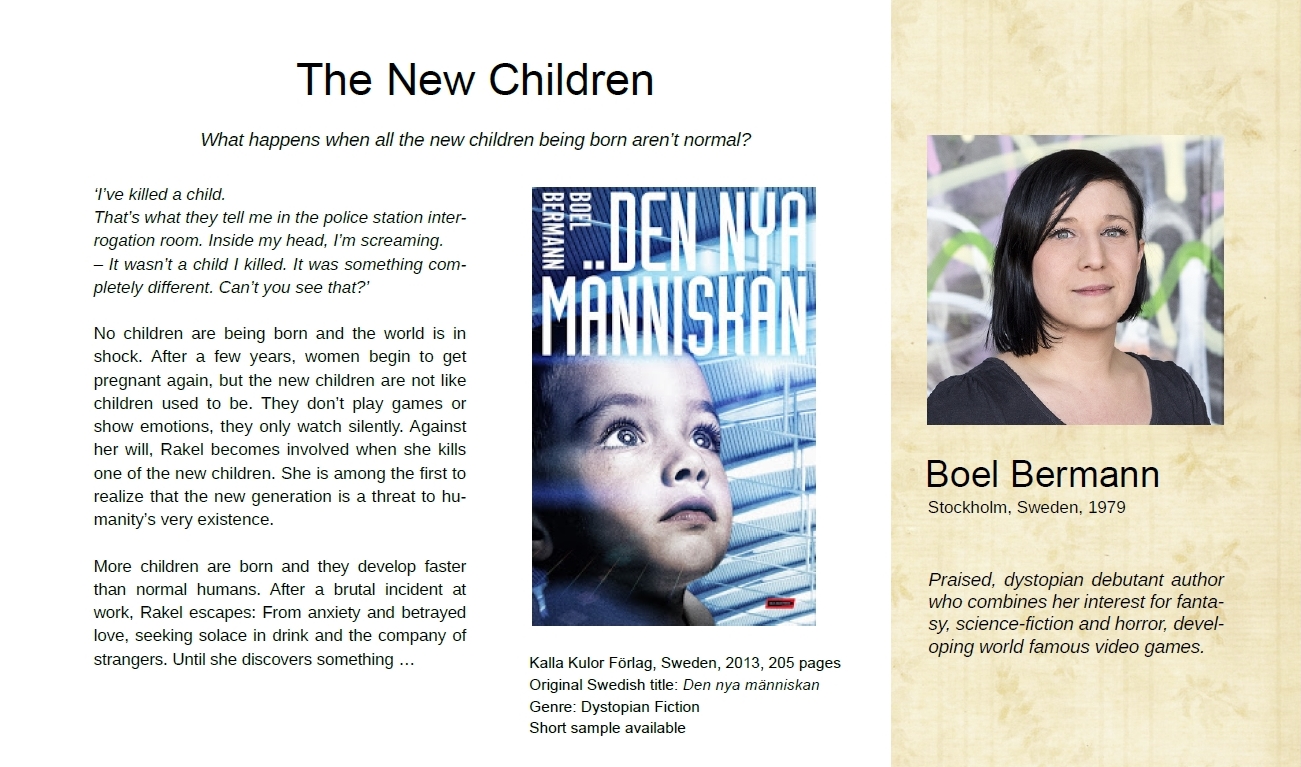When I try to recall my first experience with Donna Tartt’s novel The Secret History, it always blends together with the end of that summer I spent in the countryside and these words from the novel itself:
“On Sunday I woke up early to a quiet house. Francis had given my clothes to Mrs Hatch to be laundered; putting on a bathrobe he’d lent to me, I went downstairs to sit on the porch for a few minutes before the others woke up. Outside, it was cool and still, the sky the hazy shade of white peculiar to autumn mornings, and the wicker chairs were drenched with white dew.”
My newfound friends from school had given me the novel as a gift, but I had been hesitant to read it. Knowing what the book meant to them, I was afraid it wouldn’t fulfill my expectations and thereby I’d letting them down in some way. But somehow I found the courage to read it. I remember being mesmerized by the words, sitting on the porch of an old Swedish country house drinking my coffee. Reading my friends words scribbled on the first page made me feel as chosen as Richard, to be included into their group of friends. I never wanted to put the novel down; I wanted to devour the words without any interruptions. But life demanded that I occasionally put it aside. However each morning I went out to the porch and sat there reading while the house was still sleeping.
The Secret History is one of the few novels that I have revisited more times than I can even remember. And when I hear Donna Tartt utter the words that she uses to describe Dickens, I realize that is how I wish I could have described what it has been like to read her novels:
– No matter how many times I read them, I always see something new. You can never quite pin it, define it and take the measure of it. The stories cut across time and class.
The chair Donna Tartt is sitting in doesn’t allow her feet to rest at the stage floor. Instead they dangle with the toes touching the stage floor and she keeps the toes together. This small detail makes her appear like a child dressed in a grownup clothes, a precocious and intellectual child that analyzes her own work and tries to remember how she became an author:
– I can´t remember not being able to read. I can remember not being able to read handwriting, but I thought the grownups were writing in some sort of code to keep us kids from understanding their notes.
It seems as if she recalls the south of her childhood with a sense of loss that can be felt in her novel The Little Friend that takes place in Mississippi, in a fictional town in an era that is gone now.
– My childhood wasn’t very different from the south that my grandmother and my great-grandmother lived on. The south was sort of a time capsule and I believe me and my sisters was the last generation to have lived in it. Now that is gone, now the south is like the rest of the world.
Unlikely as it sounds, Donna Tartt once wrote a short story about cheer-leading. No one was interested in it until The Secret History was published. Then people started to ask her if she happened to have anything else and the manuscript emerged from a drawer. She says, almost apologetically, that she was very young when she wrote it.
– I remember sitting in the car reading George Orwell, I was the only cheerleader reading Orwell. You might say that being a part of the cheerleading squad was sort of being in an Orwellian organization. It wasn’t something I wanted to do, it was more a thing I did as a child to please my parents. Mississippi is a flat, bleak landscape and driving through it is a very Kafkaesque experience with no way of telling the distance to your destination. And I remember how horrible it felt when it went too dark so I couldn’t make out the words in the book anymore.
It´s strange to hear these memories of her growing up, almost surreal. In my mind, Donna Tartt has always been who she is now. My mind can´t take in the fact that she was once a child growing up in the south, that she has been a cheerleader or the fact that she helped out in the library in her hometown, even after her debut novel had received critical acclaim. I realize I hardly view her as American. I have placed her in her own time and space and she keeps reminding me that she is American, even when that means such fragmented and different things.
– Something quite different about America is that class is very fluid. It is easy to move both up and down in class. In the south, when I was young as it is described in The Little Friend, it was very fixed classes. But in The Secret History and in The Goldfinch, it´s a lot about the movement up and down between the classes. If you view books such as The Great Gatsby and a lot of American literature and our national stories – classes and the movement between classes has always been there as a reoccurring theme.
During the conversation she comes back to America a lot, to what makes the country she lives in different from the rest of the world. She speaks of the short story Young Goodman Brown and calls it an anti-moral tale. She explains:
– In America, as a society, we tend to spit up things into good and evil. Our nation is built on the Jeffersonians, enlightenment and declaration of independence, but our country was still funded by Puritans. So the country is divided into those who want new ideas and those who want to keep thing as they are.
I´m at one of the last public appearances for Donna Tartt in Sweden, taking place at Kulturhuset Stockholm. Through the entire conversation, Donna Tartt keeps her eye on the person in front of her and appears to become unaware of all of us sitting there in the audience. Not in a nonchalant way, rather the opposite. I suspect she almost forgets us, since she is so engaged in the talk.
The myth of Donna Tartt came very much from her praised debut novel The Secret History and the silence that followed during the ten years before her next novel was published. Her readers, like myself, were afraid. We feared that the silence meant that she would never write another novel and that her ability to write would be lost to the world. The only one not afraid was Donna Tartt. She knew that the wait would be long and that her readers would have to be patient:
– I knew a book wouldn’t come soon after The Secret History. It took me nearly ten years to write that novel. I started when I was nineteen and finished it when I was twenty-eight years old.
During the conversation, she turns away from the audience, but it again seems like she is unaware of it and is only doing turning to be better able to view the person she is talking to. It´s not really an interview, it´s much more a conversation between the two people up on the stage. We are merely eavesdropping on a conversation, all 700 hundred of us. Every now and then we remind Donna Tartt of our existence, by applauding, laughing at a joke or making discrete noises of approval.
For a brief period of time, her posture changes when she reads from her latest novel, The Goldfinch. When reading, she sits straight and lifts her gaze to the novel. She looks up, but not as much at the audience but beyond. As if she is recalling the space she has written about in the novel, the area between the creator, the work and the illusion it creates.
– It´s like when you dream and wake up and remember what you dream. You can know what caused the dream, something you read, heard or viewed previously – but you don´t know why it took the shape it did in the dream. The area between where we can see the artist’s work, the human hand that shaped the painting and the moment where you take a step back and the illusion takes over and shows you the motif.
Personally I have always had a strong emotion for novels that are written in first person perspective and I often write in that perspective myself. There is something fascinating about forcing the reader into the mind of the main character. I believe this perspective makes it both easier to love as well as hate the characters, depending on how they feel about the person. Being forced into viewing the world from the eyes of someone you dislike or are too different from is a hard thing. For Donna Tartt, she very carefully chooses how to tell the story in order to being able to tell the stories she wants.
– In The Secret History, it was important that the reader would not know anything about what the other persons were thinking. The reader realizes and experiences the same things as Richard does about what is happening. In The Little Friend it was important to expand beyond Harriet’s point of view, because she is a child and does view the world from her perspective. And she does view things the wrong way when she interprets them.
Donna Tartt has a love for old adventure novels for children. She says that she was at a very formative age when she read all the books she could find in her grandmother’s house and in the public library. Since the library didn’t have much money, they didn’t have many recent books. Therefore, she simply read what was around. Reading what was around meant reading things that made an impression. She is very serious when she describes what she enjoys about Treasure Island:
– When it comes to Treasure Island, Stevenson doesn’t dumb down when writing for children. Even the villain John Silver is not a pure villain, he´s complicated. First the main character believes he is a wonderful man. Then the scene comes when he overhears a conversation… As both children and adults, we tend to trust people that look a certain way and we are taken by appearances.
Just like Richard Papen, taken by the appearance of the group of friends in The Secret History, fascinated by how they are unlike all the others.
She sits there leaning forward. The position signals that she wants to make sure she takes in all the words in order to answer to the best of her ability. She is very still, only using small gestures to reinforce her words. I wonder if she writes with as small gestures, scribbling down her words in discreet letters in her beloved notebooks.
– I keep notebooks wherever I am and wherever I go. I write something every day, even when I travel. When I´m home, I always write in the morning for at least three hours. If I, after that time, feel tired or frustrated, I shop or call my mother or do something else. But if I get into the writing, I will keep writing for quite a long time. I can´t just write in the same place, especially since it takes me quite a lot of time to finish a novel. If I only stayed in one place and wrote, I would be chained to that place for ten years. However I write by hand and the pile of notebooks grows throughout my writing process, so when I am closing in on the end I need to stay in the write place just to have all my notebooks with me.
I´m holding my breath, hoping that she will reveal more on how it is to live with her characters and her novel for such a long time. How she keeps her discipline, how she does research, what notes she scribbles down and at what moment she realizes that she has found the core of her next book, the book that will be her companion for such a long time. She is only giving small details about it, not revealing much about how it is to have a novel as your constant shadow.
– I enjoyed writing my latest book, but at first I didn’t realize it was a novel. It was just notes. There were these things that I knew were connected, but I didn’t know how. I don´t have a perfect plan for my novels, they evolve during the time I write them.
Donna Tartt’s appearance is thin, but not fragile. Her contours are sharp and she is dressed in black with red details, razor-sharp page and flat shoes in lacquer. Her appearance is as timeless as her work. Watching her up on stage, I realize that she could almost be from any time and her work carries the same timeless stamp:
– I don’t want my books to be bound to a certain time and that drives some people crazy. Because they want to know in what time the books took place and I have carefully edited out the time references. I want my novels to be very intentionally blurred in time. What I write is not meant to be real, my work is not supposed to be documentary reality. I want my novels to be removed from the ordinary.





Kommentarer